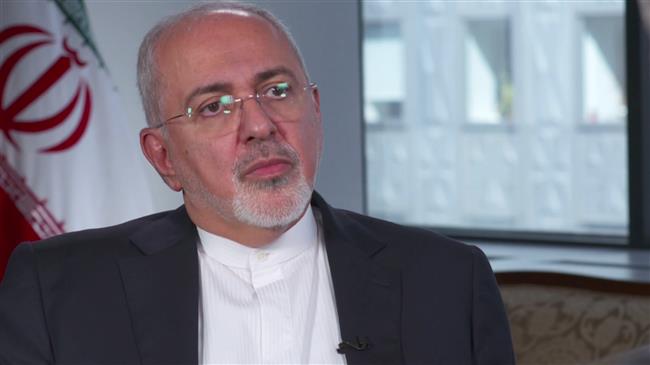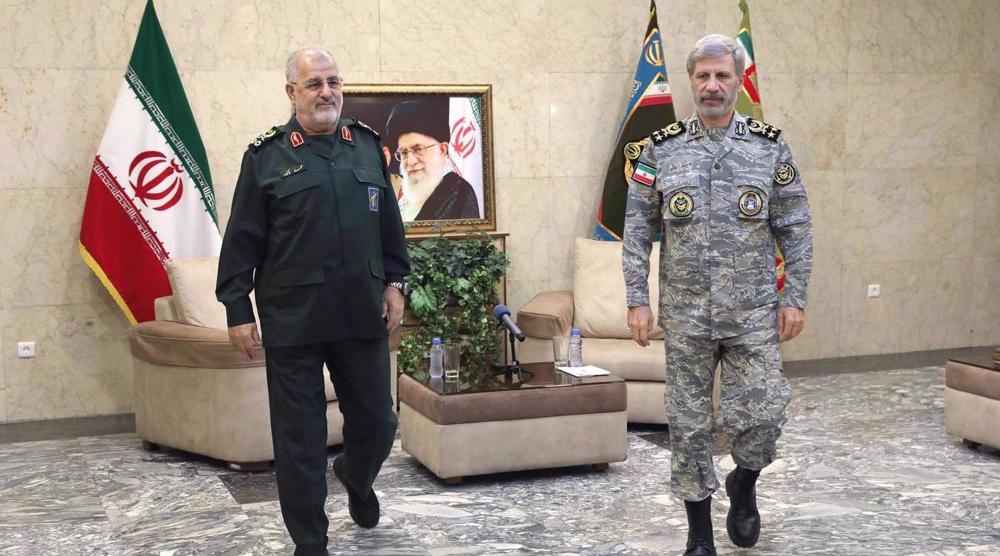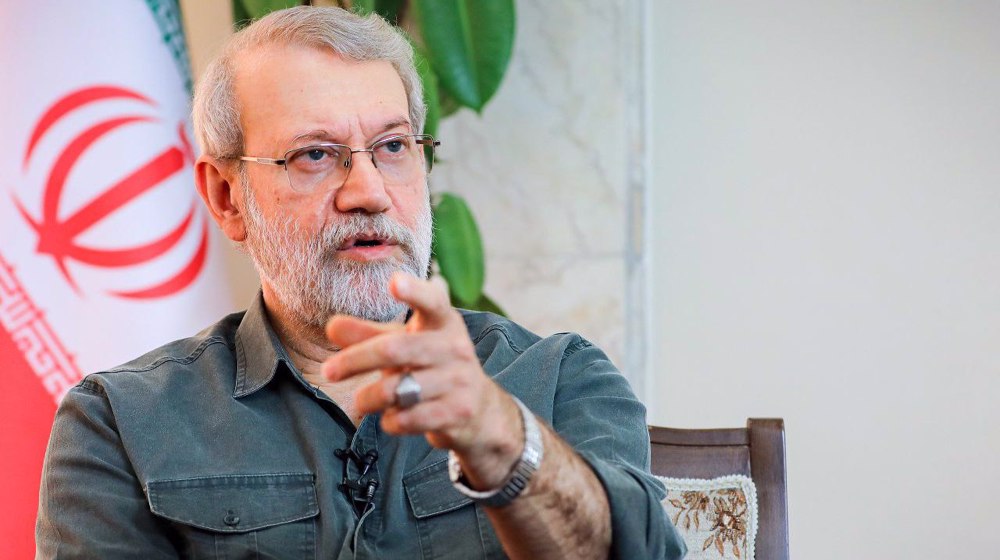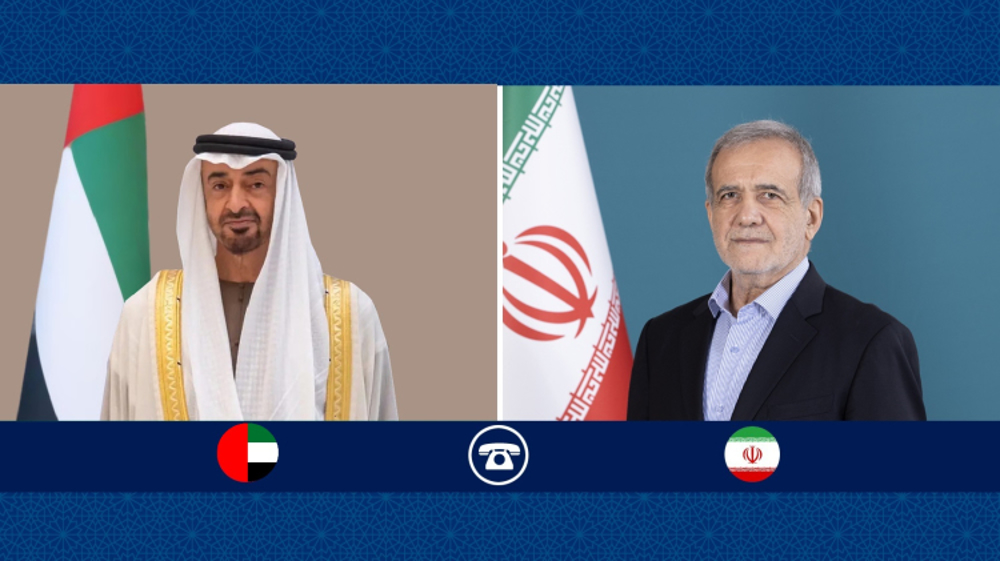Trump no reliable negotiating partner after ending Amity Treaty: Iran FM
Iranian Foreign Minister Mohammad Javad Zarif says the United States has once again proved that it is not a "reliable negotiating partner" by pulling out of a decades-old treaty with Iran, stressing that US President Donald Trump is not bound by any negotiated settlement.
"They (the US) were always saying that we want a treaty with Iran. Now they just withdrew from the [1955 Treaty of Amity] that we have with the United States because the International Court of Justice ruled against them," Zarif said in an interview with Qatar-based broadcaster Al Jazeera in New York released on Friday.
"That tells you that whatever you negotiate with this president and with this administration, they're not going to be bound by it," he added.
US Secretary of State Mike Pompeo said on Wednesday that Washington is canceling a 1955 treaty with Tehran after the International Court of Justice (ICJ) ordered the United States to halt the unilateral sanctions it recently re-imposed on "humanitarian" supplies to Iran.
“I’m announcing that the United States is terminating the 1955 Treaty of Amity with Iran, this is a decision that is 39 years overdue,” Pompeo told reporters at the State Department.
The Hague-based ICJ, which is the principal judicial organ of the United Nations, announced its ruling on Wednesday regarding the July lawsuit brought by Tehran against Washington's decision to re-impose unilateral sanctions following the US withdrawal from the nuclear agreement Iran signed with the P5+1 group of countries in 2015.
Iran’s lawsuit argued that the sanctions violate the terms of the 1955 Treaty of Amity between Iran and the US. It also called on the court to order Washington to immediately suspend the measures.
The decisions of the ICJ – which rules on disputes between UN member states – are legally binding and cannot be appealed.
Read more:
- Iran slams US 'outlaw regime' for quitting another treaty
- Iran says US termination of Amity pact sign of 'anger'
- UN’s top court ruling shows anti-Iran sanctions illegitimate
In response to a question about the US move to pull out from the nuclear agreement, officially known as the Joint Comprehensive Plan of Action (JCPOA), Zarif once again defended the deal that is in the "interest of the international community."
"The nuclear deal is the best the United States can get, and it's the best Iran can get, and it's the best the international community can get," the top Iranian diplomat told UpFront host Mehdi Hasan.
Asked if Iran will ever meet with the US president or members of his administration, Zarif said, "In politics, never say never. But I believe that there is need for a serious change in the [US] administration."
He emphasized that Iran is "not actually eager to meet with" President Trump because the "United States is not a reliable negotiating partner."
Trump announced in May that Washington was pulling out of the nuclear agreement which lifted nuclear-related sanctions against Tehran in exchange for restrictions on Tehran's nuclear program. The deal had been signed between Iran and the five permanent members of the UN Security Council -- the United States, Britain, France, Russia and China -- plus Germany in 2015.
The US administration reintroduced the previous sanctions while imposing new ones on the Islamic Republic. It also introduced punitive measures — known as secondary sanctions — against third countries doing business with Iran.
A first round of American sanctions took effect in August, targeting Iran's access to the US dollar, metals trading, coal, industrial software, and auto sector. A second round, forthcoming on November 4, will be targeting Iran’s oil sales and its Central Bank.
The Iranian foreign minister further stressed that Tehran should benefit from the "economic dividends" of the JCPOA.
"Iran has given the Europeans some time, because they asked us for some time to try to compensate for US departure from the nuclear deal," he added. "That means that Iran needs to receive the economic dividends of the deal."
Despite Washington's withdrawal, Iran has not left the deal yet, but stressed that the remaining signatories to the agreement now had to work to offset the negative impacts of the US pullout for Iran if they wanted Tehran to remain in it.
Other parties to the JCPOA have repeatedly announced that the deal is working and should stay in place.
Addressing the Austrian parliament in Vienna on Friday, European Union Commission President Jean-Claude Juncker said the bloc is determined to keep the nuclear agreement in place despite the US withdrawal.
He added that the EU is sticking to the agreement and engaged in "intensive talks" with the Americans about the deal.
Read more:
- IAEA dismisses Israel's call to inspect Iran facility
- Iran nuclear deal serves international community's interests: China FM
- US threats of imposing sanctions on Iran 'unjust': Turkey's Erdogan
- Iran in compliance with nuclear deal: British PM
- EU will continue efforts to keep Iran nuclear deal alive: Mogherini
Iran condemns use of chemical weapons
Asked about his stance on the use of chemical weapons in Syria, the Iranian foreign minister said, "I condemn anybody using chemical weapons."
"We condemn any attacks against civilians no matter who does it," Zarif pointed out.
Washington has accused the Syrian government of attacking civilians with chemical weapons in previous operations, including in Douma near capital Damascus and in Khan Shaykhun in Idlib. Syrian authorities have strongly denied any involvement in either case, saying the attacks had been carried out by militants to slow Syria’s progress in the fight against terror.
Both Syria and Russia, a close ally of the Arab country, have already submitted proofs and evidence to the United Nations and the Organization for the Prohibition of Chemical Weapons (OPCW) showing that terrorists in Idlib are preparing to set up another false-flag chemical attack to frame Damascus and pave the way for the US-led coalition to attack Syrian government troops.
Syria has been gripped by foreign-backed militancy since March 2011. The Syrian government says the Israeli regime and its Western and regional allies are aiding Takfiri terrorist groups in the country.
Iran has been offering military advisory assistance to the Syrian army at the request of Damascus, enabling pro-government forces to speed up their advances against terrorist groups.
The US and Israel, whose interests are at stake in Syria, have repeatedly called for an end to Iran’s mission in the Arab country.
Speaking in an exclusive interview with Russia’s Arabic-language RT Arabic television news network on September 30, Syrian Foreign Minister Walid al-Muallem condemned the presence of hundreds of American troopers in the southeastern part of his country close to the border with Iraq, terming the deployment as “illegal” and an “act of aggression.”
Muallem also said, "The presence of Iranian advisers in Syria is legitimate and at the request of the Damascus government contrary to the American deployment, which is an act of aggression against Syria and must cease.”
Read more:
FIFA must strip US of 2026 World Cup hosting rights over Trump’s hawkish policies: Analyst
Iran Army slams EU’s blacklisting of IRGC as ‘shameful’, ‘irresponsible’
Iran considers armies of EU states as ‘terrorist organizations’: Security chief
Sharif University scholars condemn US foreign policy as illegal, destabilizing
Pezeshkian says Iran seeks no war, vows 'decisive' response to any attack
Iran ready for both war and dialogue, ‘will not accept dictation’: FM Araghchi
Trump warns UK against enhancing China ties as PM Starmer hails reset
VIDEO | Press TV's news headlines













 This makes it easy to access the Press TV website
This makes it easy to access the Press TV website